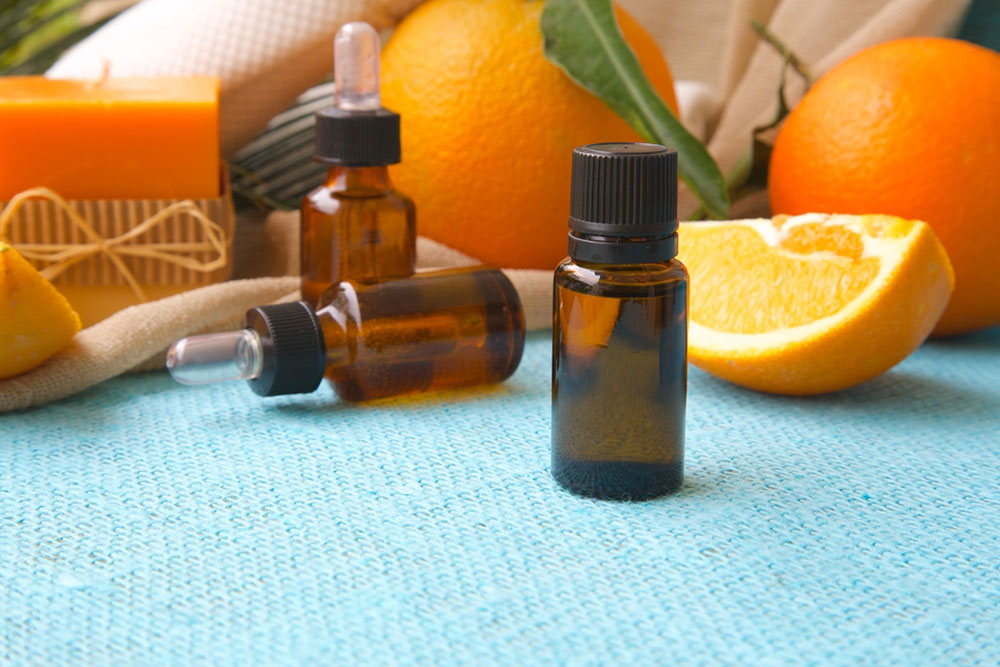Comprehensive Guide to Managing and Alleviating Coughs Effectively
This extensive guide explores effective methods to manage and control coughs, combining natural home remedies, dietary tips, and medical treatments. Understanding the different types of coughs and their causes helps in selecting appropriate interventions. From soothing honey and herbal teas to prescribed medications for persistent cases, the article provides comprehensive insights for quick relief and prevention. Empower yourself with practical strategies to alleviate cough symptoms, improve respiratory health, and ensure a faster recovery. Discover how lifestyle changes can aid in preventing future coughs for better overall respiratory wellness.

Coughing is one of the body's most common and natural defense mechanisms. It plays a crucial role in protecting the respiratory system by expelling irritants, mucus, or foreign particles. While coughing can often be a minor and temporary nuisance, persistent coughs—especially those that last beyond a few weeks—can significantly affect daily activities, sleep quality, and overall health. Understanding the different types of coughs, their causes, and effective treatment approaches is essential for anyone seeking relief. This comprehensive guide delves into the various strategies to control coughs, ranging from simple home remedies to medical interventions, ensuring a quicker and more comfortable recovery.
Understanding Coughs: Types and Causes
Coughs are classified based on their duration and underlying cause:
Acute Cough: Lasts up to 2 weeks. Usually caused by infections such as the common cold or flu.
Subacute Cough: Persists for 3 to 8 weeks. Often a lingering effect of respiratory infections.
Chronic Cough: Extends beyond 8 weeks. May indicate underlying conditions like asthma, allergies, acid reflux, or chronic bronchitis.
The causes of coughs are varied, ranging from viral infections, bacterial illnesses, allergies, asthma, smoking, to gastroesophageal reflux disease (GERD). Identifying the root cause is vital for choosing the most effective treatment approach. While many coughs are self-limiting, some require medical attention to prevent complications or address underlying health issues.
Effective Home Remedies for Cough Relief
For mild and acute coughs, home remedies can offer significant relief. These natural treatments are cost-effective, easily accessible, and generally safe when used appropriately. They can accelerate healing, soothe irritated throats, and reduce cough frequency. Here are some of the most effective home remedies to include in your cough management toolkit.
Honey: Nature’s Cough Soother
Honey has been used for centuries as a natural remedy for coughs and sore throats. Scientific studies support its efficacy, demonstrating that honey can reduce coughing frequency and duration, especially in children aged over one year. Its viscous nature coats the throat, providing a soothing effect, while its antimicrobial properties help combat respiratory infections.
To harness honey's benefits, add two teaspoons to warm herbal tea or lemon water. This not only enhances the soothing effect but also provides added vitamin C. It’s important to note that honey should never be given to infants below one year of age due to the risk of botulism, a rare but serious bacterial illness.
Stay Hydrated
Hydration is critical when managing coughs. Drinking plenty of fluids keeps the throat moist, prevents dehydration, and helps thin mucus secretions, making them easier to expel. Water is the best choice, but warm liquids such as herbal teas, broths, or warm lemon water can further soothe the throat and provide extra relief. Hydration also supports the immune system, aiding faster recovery from infections.
Saltwater Gargle: Clearing Mucus and Reducing Inflammation
Gargling with a warm saltwater solution is an age-old remedy for sore throats and coughs. Dissolve a teaspoon of salt in a glass of warm water and gargle for 30 seconds before spitting out. This practice helps keep the throat moist, reduces inflammation, and breaks down mucus. Regular gargling can prevent secondary infections and alleviate persistent throat irritation.
Turmeric and Black Pepper in Milk
Turmeric contains curcumin, a compound renowned for its anti-inflammatory and antimicrobial properties. When combined with black pepper, which enhances curcumin absorption, this mixture becomes a potent natural remedy. Boil a pinch of turmeric and black pepper in a cup of milk and drink warm. This soothing beverage can help fight respiratory infections, reduce inflammation, and calm cough impulses.
Pineapple: An Enzymatic Relief
Pineapple is rich in bromelain, an enzyme that has been shown to loosen mucus, reduce inflammation, and suppress cough reflexes. Consuming fresh pineapple slices or pineapple juice three times a day may provide relief from persistent coughing. However, individuals on blood-thinning medications should limit pineapple intake due to its blood-thinning properties.
Peppermint: Natural Anti-Inflammatory
Peppermint contains menthol, which acts as a natural decongestant and anti-inflammatory agent. Inhaling peppermint steam or drinking peppermint tea can relax bronchial muscles and soothe irritated tissues. Additionally, menthol has a cooling effect that can temporarily relieve throat discomfort and suppress cough triggers.
Spice Mixtures and Herbal Blends
Spices such as cloves, cinnamon, turmeric, and ginger can work synergistically to improve respiratory health. Preparing a warm tea infused with these spices can alleviate cough severity by soothing the mucous membranes and reducing nerve sensitivity in the throat. Such herbal mixtures offer a holistic approach to cough management, leveraging traditional medicine's power.
Dietary and Lifestyle Adjustments to Prevent Coughs
Prevention is often better than cure. Making certain dietary and lifestyle changes can reduce the risk of persistent or recurrent coughs.
Avoiding Acid Reflux Triggers: Consuming spicy, greasy, or acidic foods can provoke acid reflux, leading to coughing. Limiting such foods and avoiding lying down immediately after meals can reduce reflux-induced coughs.
Supporting Gut and Immune Health with Probiotics: Incorporate probiotic-rich foods like yogurt, sauerkraut, and kimchi into your diet. These beneficial microbes strengthen the immune system, improve gut health, and can indirectly reduce respiratory infections that cause coughs.
Managing Dry Coughs
Dry coughs, characterized by a persistent tickle or irritation without mucus production, are often caused by throat hypersensitivity or irritation. These require specific strategies to keep the throat lubricated and reduce irritation.
Lozenges and Cough Syrups
Throat lozenges dissolve slowly, providing sustained relief by moisturizing the throat and delivering soothing ingredients like honey, menthol, or herbal extracts. Cough syrups containing glycerol or mild antihistamines can also alleviate dryness and suppress coughing.
When selecting medications, opt for products suitable for your age and health condition, and consult a healthcare professional if symptoms persist.
Medical Interventions for Persistent Coughs
While home remedies are effective for mild or short-term coughs, persistent or chronic coughs necessitate medical assessment and treatment. Consulting a healthcare professional is essential if coughs last longer than three weeks, worsen, or are accompanied by other symptoms like fever, weight loss, or blood in sputum.
Over-the-Counter (OTC) Medications
OTC options include decongestants, cough suppressants, and expectorants. Decongestants relieve nasal congestion, reducing post-nasal drip that can trigger coughs. Cough suppressants like dextromethorphan reduce the urge to cough, providing relief, especially at night. Expectorants like guaifenesin help loosen mucus, facilitating easier clearance.
These medications should be used judiciously and according to instructions to avoid side effects or interactions.
Prescription Medications and Treatments
In cases where bacterial infections are suspected, antibiotics may be prescribed. For asthma-related coughs, inhalers containing bronchodilators or corticosteroids are prescribed to open airways and reduce inflammation. GERD-induced coughs may require proton pump inhibitors (PPIs) to reduce stomach acid production.
Additionally, allergy treatments like antihistamines or immunotherapy can address allergy-related coughs.
When to Seek Medical Attention
If coughs are accompanied by difficulty breathing, chest pain, high fever, blood in sputum, or if they persist beyond a few weeks despite home remedies, consult a healthcare provider promptly. Early diagnosis and targeted treatment can prevent complications and address underlying health issues effectively.
Conclusion
Managing a cough effectively involves understanding its cause, applying appropriate home remedies, making healthy lifestyle adjustments, and seeking medical care when necessary. Natural remedies like honey, ginger, and pineapple can provide quick relief for minor cases, while chronic or severe coughs demand professional evaluation for proper diagnosis and treatment. Preventive measures, such as maintaining good hygiene, avoiding known triggers, and supporting immune health, can reduce both the frequency and severity of coughs. With a comprehensive approach, relief from cough symptoms and quicker recovery are well within reach.





